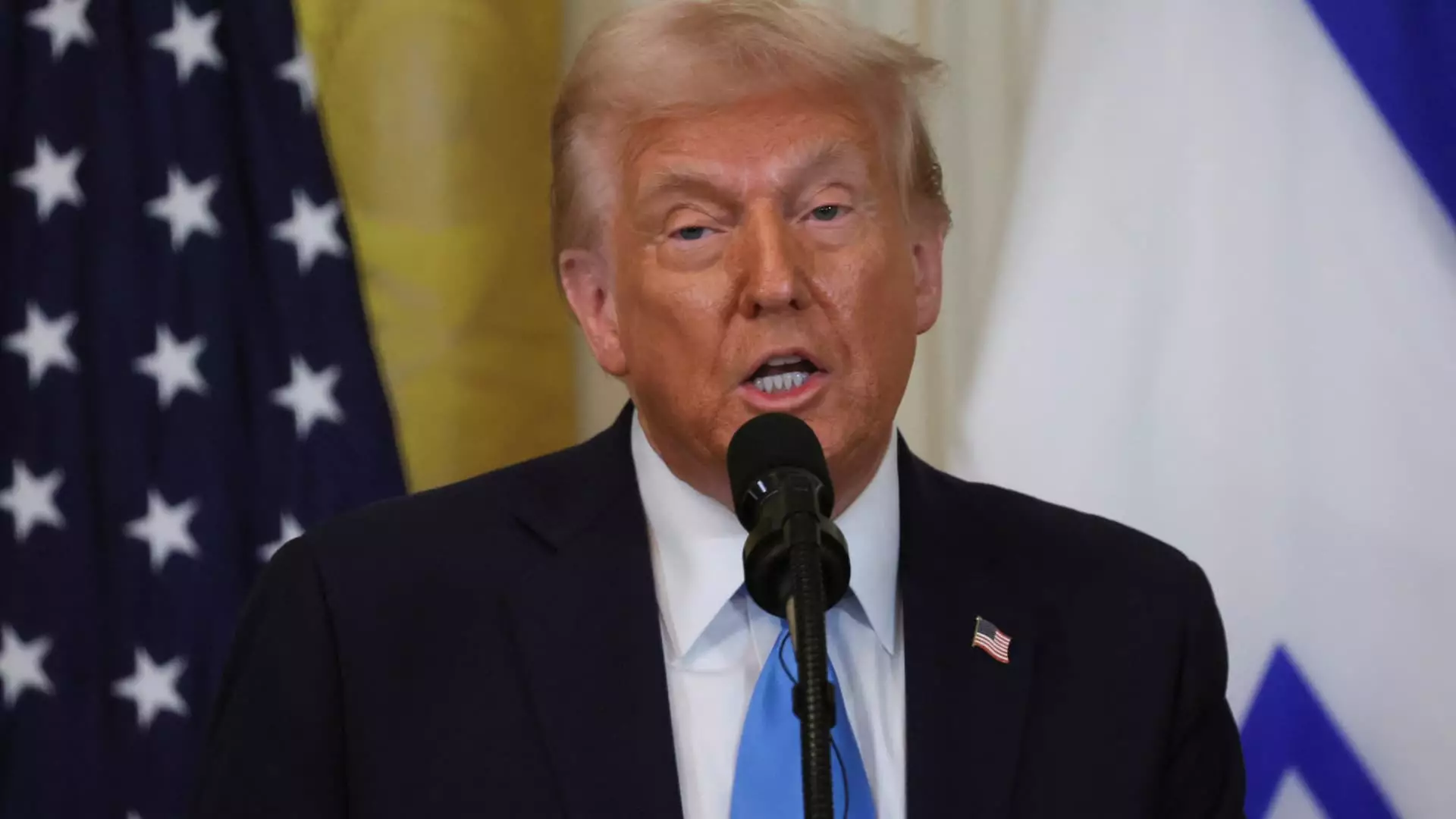The recent comments made by former President Donald Trump regarding the Gaza Strip have sparked fervent debate and scrutiny over United States foreign policy and the complex dynamics of the Middle East. With an alarming premise that the U.S. should “take over” the Gaza Strip and facilitate the relocation of its people, Trump’s remarks have raised both eyebrows and critical questions about his vision for the region.
At a press conference alongside Israeli Prime Minister Benjamin Netanyahu, Trump asserted that the U.S. should assume control over the Gaza Strip, describing the territory as a “hellhole” in desperate need of redevelopment. His inflammatory language and straightforward proposition indicate a radical shift in how the U.S. might engage with the ongoing Israeli-Palestinian conflict. This shift, accompanied by suggestions of transforming Gaza into a luxurious tourist destination akin to the “Riviera of the Middle East,” illustrates Trump’s tendency to think outside the box but also raises ethical concerns about imposing solutions on long-suffering populations.
Despite his bold proclamations, the practicality of such an endeavor appears questionable. Trump suggests a massive development plan aimed at eradicating the remnants of war and creating jobs and housing, yet he glosses over the monumental challenges that would accompany such an operation. Constructing an infrastructure of peace and prosperity in a war-torn area, particularly one with ongoing political tensions, involves complex dynamics that may not lend themselves easily to the American entrepreneurial spirit.
The Humanitarian Dilemma
In Trump’s commentary, there is little emphasis on the humanitarian implications of his proposal. His assertion that around 2 million Palestinians should abandon their homes to be resettled in neighboring countries poses significant moral and ethical issues. The ramifications of forcibly displacing populations are profound, risking further unrest and resentment while perpetuating cycles of trauma and conflict.
When contemplating the movements of people across borders, we must question the willingness of other countries, like Jordan and Egypt, to absorb a large influx of refugees. Historical context underscores how previous mass displacements have strained regional relations and often give rise to new tensions. Failing to account for the voices and rights of the Gaza residents in this discussion not only renders the proposal impractical but also contributes to a history of disregard for the self-determination of Palestinian people.
While Trump’s vision hints at a potential restructuring of U.S. engagement in Middle Eastern affairs, it is necessary to consider the underlying political ramifications. Trump has previously floated controversial ideas, such as the notion of purchasing Greenland or incorporating Canada as a state, revealing a penchant for unconventional proposals that draw attention but lack concrete feasibility.
The geopolitical landscape of the Middle East is not a realm where ‘ownership’ can simply be exchanged or bargained for, especially given the delicate balance of power among various factions. The reaction of local and international leaders to the idea of U.S. control over Gaza was telling; while Netanyahu expressed interest, others voiced deep apprehensions about the implications of such actions. The idea underscores the complexities of foreign control and intervention, and how they can easily spiral into conflicts of interest rather than solutions.
Trump’s comments regarding the Gaza Strip rekindle debates on U.S. foreign policy and the responsibilities of the international community towards areas afflicted by conflict. While his vision for a redeveloped, peaceful Gaza is optimistic, the glaring omission of the people who inhabit this territory from the conversation raises substantial concerns. The long-term success of any solution will rest not just on ownership or redevelopment but on genuine diplomatic engagement characterized by compassion, understanding, and respect for the rights and desires of the Palestinian people.
Ultimately, if there is to be a path forward, it should involve constructive dialogue that acknowledges the complexities of the situation rather than imposing solutions that risk deepening divides and perpetuating cycles of violence and displacement. The discourse surrounding Gaza necessitates a nuanced understanding of local needs, the humanitarian landscape, and a steadfast commitment to fostering peace in a region long plagued by conflict.



Leave a Reply